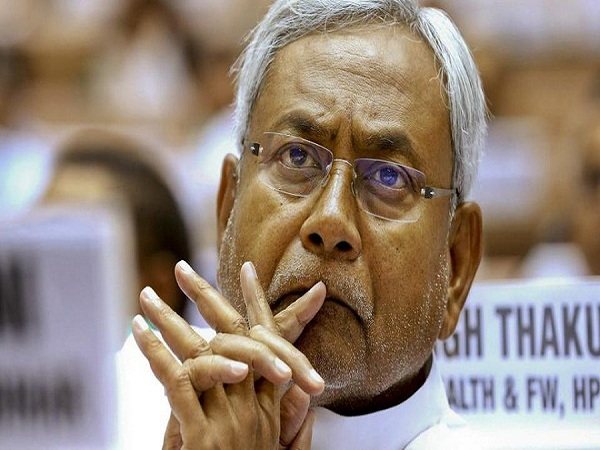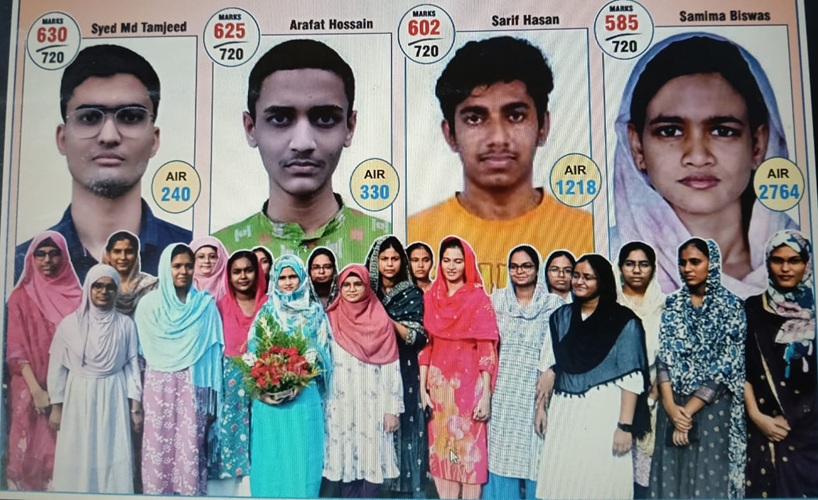The very timing of dealing a blow to JD-U is shocking. The party was about to hold its two-day national executive meeting a day later
Soroor Ahmed
THIS is another example of utter helplessness of Bihar Chief Minister Nitish Kumar. When as a part of Christmas gift, the Bharatiya Janata Party (BJP) split the Janata Dal-United (JD-U) Legislative Party in Arunachal Pradesh, the state notorious for horse-trading, and wooed six out of the seven MLAs just a day before its national executive meeting on December 26-27, the National president of the party, Nitish Kumar, said that “yah koi badi baat nahin hai” (this is not something unusual).
Mocking at the Chief Minister, both the Rashtriya Janata Dal (RJD) and the Congress asked when JD-U is going to merge with the BJP.
It is true the BJP-JD-U alliance only exists in Bihar, but it is also true that, in no other case, a big party breaks a friendly party in another state when there is absolutely no excuse for it.
In the 2019 assembly elections in Arunachal Pradesh, BJP won 41 seats in the House of 60. Thus, its government was comfortably placed and there was absolutely no threat to it.
JD-U, which contested 15 seats separately, won seven of them. The better performance of the party came as a big surprise in the state where it has no big leaders or organisational network.
Besides, there is hardly any Bihari factor there as in the case of Delhi, though it is true that there are some people from Bihar living in Arunachal since long.
In the state where the entire Congress was decimated and converted into BJP after the advent of Narendra Modi at the Centre, the shifting of loyalty by six JD-U legislators is not something very surprising.
It needs to be mentioned that on September 16, 2016, as many as 43 out of 44 Congress legislators, including the Chief Minister, Pema Khandu, joined the People Party of Arunachal, a part of the North-East Democratic Alliance (NEDA), a BJP-led front.
Then, on December 31 that year, another development took place when 33 out of the 43 PPA MLAs, including CM Khandu, finally joined BJP.
Though destroying the Congress in that state might have been an exercise to make India Congress-mukt (free), alluring the JD-U MLAs when there was apparently no need for it sounds somewhat bizarre. Along with the JD-U MLAs, a PPA legislator had also joined BJP, whose strength in the House has increased to 48.
Apart from this, the very timing of dealing a blow to JD-U is shocking. The party was about to hold its two-day national executive meeting a day later. And at the top of the agenda was certainly the party’s performance in the just-concluded assembly elections in Bihar. As this was the first such meeting of the national executive of the party, the situation in Bihar was bound to dominate it.
But the development in the Himalayan state has certainly forced it to shift the focus towards Arunachal Pradesh.
The poaching done by BJP in a North-East state was not an isolated incident but appears to be a part of the deliberate plan to humiliate Nitish Kumar and cut him further to size.
It was only 10 days ago that Nitish, while talking to the media, said that there was no plan to expand the cabinet as no such proposal in this regard has come from BJP. Never before a Chief Minister, who till a few years ago loved to be called as the prime ministerial material, has exposed his weakness so publicly.
It is the same Nitish who, on June 12, 2010, cancelled the dinner of the top leadership of BJP–which included L K Advani and Narendra Modi—just because some newspapers carried certain advertisement of the Gujarat government. The entire BJP leadership was in Patna where it was holding its national executive meeting.
It was the same Nitish, who, on June 16, 2013, sacked all the 11 BJP ministers and snapped ties with the saffron party after 17 long years of relationship. Interestingly, he did so without citing any valid reason for it.
Years later, BJP is paying him back in the same coin. But a politically weak Chief Minister is not in the interest of the people of the state as, in such a situation, he would lose control over the bureaucracy.






0 Comments